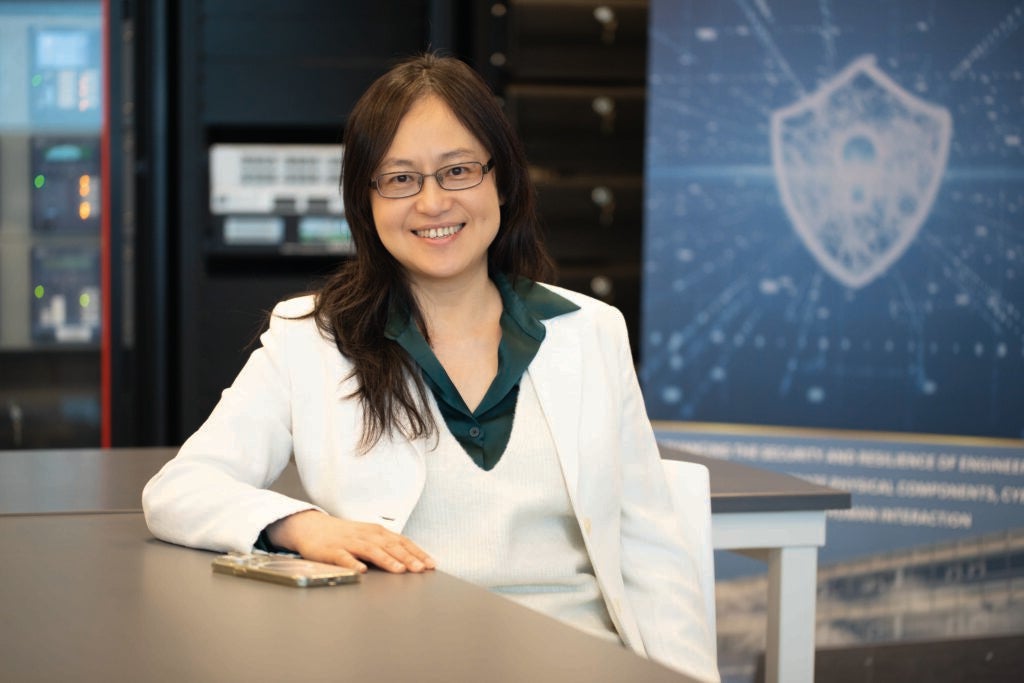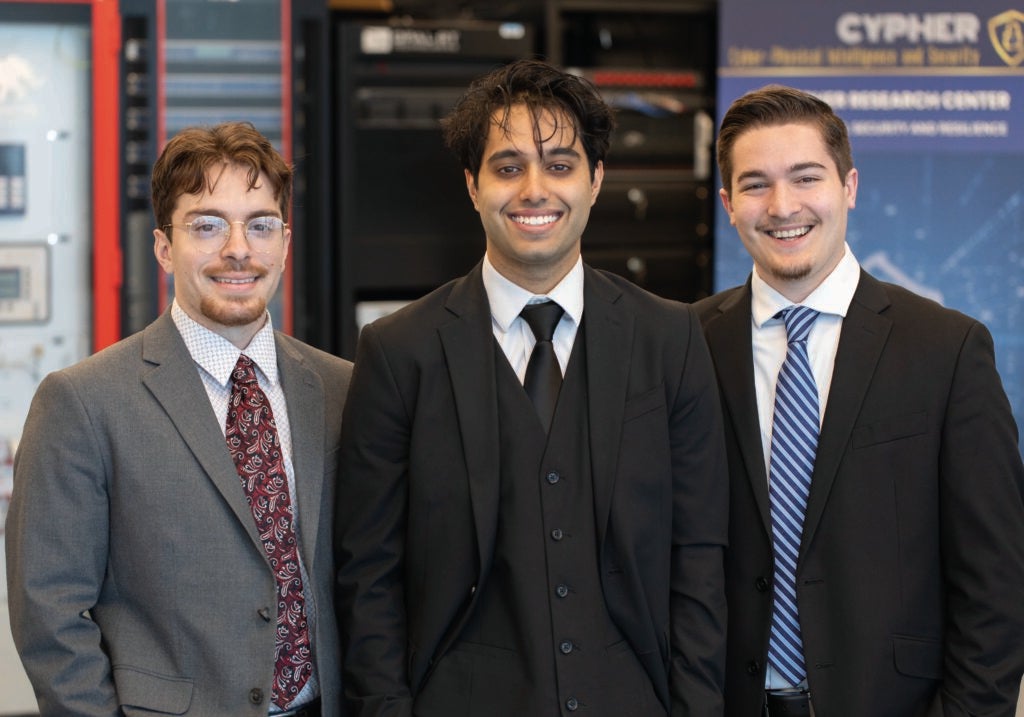In 2006, cybersecurity was still an emerging field. As the internet rapidly expanded, it exposed computer networks, servers, and user devices to a growing range of external threats. Around this time, the concept of “trust” began to gain attention in the context of how computer systems could evaluate the reliability and security of other entities they interact with.

Professor and Chair, Department of Electrical, Computer and Biomedical Engineering
Back then, most research on “trust” focused on narrow technical models within specific applications. Professor Yan Lindsay Sun was driven by the idea that trust — something we usually think about in human relationships—could also be applied to computer networks.
“The research funding from the NSF CAREER award allowed me to bring trust—a social science concept—into computer networking research,” Sun says. “At the time, trust wasn’t really considered in network security, but I developed a method to integrate this perspective into cybersecurity. In everyday life, we decide whom to trust based on experience and context. I wanted computers to be able to do something similar — to “reason” about which devices or users they could rely on.”
Her project focused on building a trust infrastructure for computer networks—a system capable of measuring, assigning, and updating levels of trust between digital entities. Her team developed formal mathematical models inspired by social science theories, applied them to real-world cybersecurity problems, and designed trust-based defense mechanisms. This work enables networks to determine, for example, whether to accept data from another source or block it due to suspicious behavior—ultimately strengthening security without compromising performance.
This CAREER award, which was her first federal grant, was a turning point in Sun’s career. The support gave her the foundation to build her research program and her team.
“With this funding, I was able to recruit my first two Ph.D. students, funding three graduate students in all,” Sun says. “That’s a big milestone for any new professor. One of them is now an associate professor at Santa Clara University, and she has since graduated many of her own students. Seeing that cycle of mentorship continue is incredibly rewarding.”

A single paper resulting from this grant has been cited more than 870 times by other researchers according to Google Scholar, showing how influential this work has had in the field.
“I’m proud to have been one of the pioneers who helped bridge social science and computer engineering,” Sun says.
Sun’s work has given the research community a clear understanding of the benefits and costs of building trust-enhanced systems. The proposed theories, approaches, and architecture provided a blueprint toward building trust and evaluating trustworthiness in various networking systems and continue to contribute to making future cyberspace safer and more accessible.
“I’m proud to have been one of the pioneers who helped bridge social science and computer engineering.”Yan Sun, Professor and Chair, Department of Electrical, Computer and Biomedical Engineering
Her research played an important role in enhancing cybersecurity, which has become more critical than ever, impacting everything from national security to critical infrastructure. Trust is now a widely used concept in cybersecurity—from trustworthy computing to trustworthy AI—for diverse organizations including higher education, industry, and government.
Sun’s CAREER award also made a significant educational impact. More than 630 undergraduate students participated in the online rating Cyber Competition, which not only yielded valuable research datasets, but also raised public awareness of the lack of trust in online reputation systems. The funding also enabled Sun to develop the first cybersecurity course at URI 20 years ago.
Sun continues to build upon that original work. Now the chair of the Department of Electrical, Computer and Biomedical Engineering at the University of Rhode Island, a Fellow of the IEEE, and the founding director of the URI CYPHER Research Center, she leads a multidisciplinary team focused on power grid security and resilience—an area with critical implications for energy infrastructure and national security.
This summer Sun launched the first Cyber-Physical Security and Resilience (CYPHER) Integrated Project Team Meeting on Power and Manufacturing Systems, and for Meeting for Naval Applications. The invitation only events convened leading academic researchers, industry innovators, and government representatives to collaboratively explore solutions to critical challenges in energy systems, manufacturing, and defense-related technologies.
“When I think about where it all started,” she reflects, “it really traces back to my first federal grant—the NSF CAREER award I received 20 years ago. It’s incredible to see how it has grown into something with such broad and lasting impact.”
